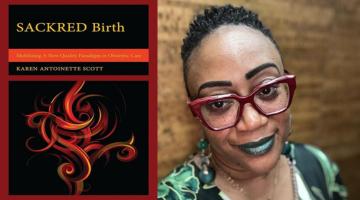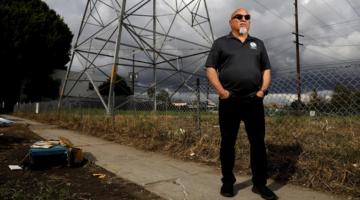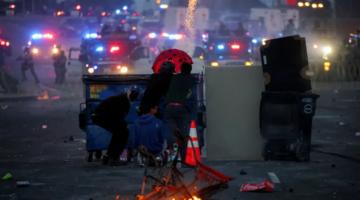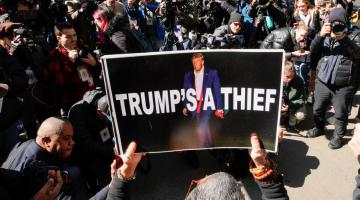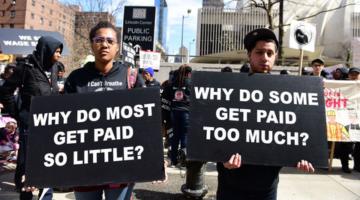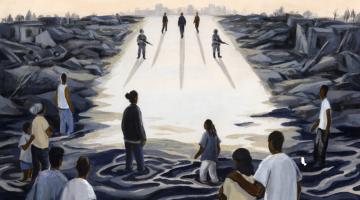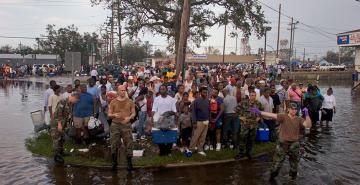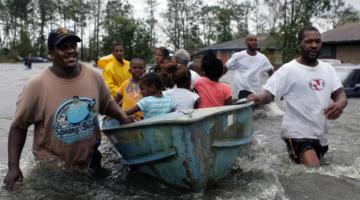Related Stories
Editors, The Black Agenda Review
“It’s not like New Orleans was caught off guard. This could have been prevented.”
Glen Ford, BAR Executive Editor
"Racism showed its ass in the days after August 29, 2005."
Roberto Sirvent, BAR Book Forum Editor
In this series, we ask acclaimed authors to answer five questions about their book. This week’s featured author is Karen Antoinette Scott. Dr.
Raymond Nat Turner, BAR poet-in-residence
What? You mean the client list vanished? Disappeared?
Disappeared from the AG’s desk like dropping egg prices?
Editors, The Black Agenda Review
“Neither disaster, catastrophe, nor calamity can take precedence … over the color-caste system.”
Adam Mahoney
America’s gentrified neighborhoods have lost 500,000 Black people, while gaining residents of every other race, a study finds.
Jon Jeter
Trump deploys Marines against LA protesters, echoing Nixon’s Kent State crackdown.
Raymond Nat Turner, BAR poet-in-residence
Masked. Armed to the teeth. Synchronized
Editors, The Black Agenda Review
“This is not high-way robbery; it can be better called int
Jocelyn Figueroa
For millions, a job is no longer enough to afford housing—yet the myth that homeless people don’t work still dominates public opinion.
More Stories
- Jon JeterA forgotten history of cross-racial labor solidarity in 1890s New Orleans offered a glimpse of a potential future. Its deliberate destruction set the stage for the city's modern transformation into a…
- Anthony Karefa Rogers-WrightTwenty years after Katrina, the disaster stands not as an anomaly but as a blueprint. Its aftermath reveals a template for imperial domination, where "natural" disasters become pretexts for…
- Ajamu Baraka, BAR editor and columnistJoin political activist and Black Agenda Report’s contributing editor Ajamu Baraka and members of the Communist Party Marxist-Kenya on a trip to Kibera, Africa’s largest slum.
- Raymond Nat Turner, BAR poet-in-residence"Ethnic cleansing called Katrina" is the latest from BAR's Poet-in-Residence.
- Jaribu HillJaribu Hill, Executive Director of the Mississippi Workers’ Center for Human Rights, recounts the aftermath of Hurricane Katrina on the Gulf Coast and the efforts to organize on behalf of the people.



